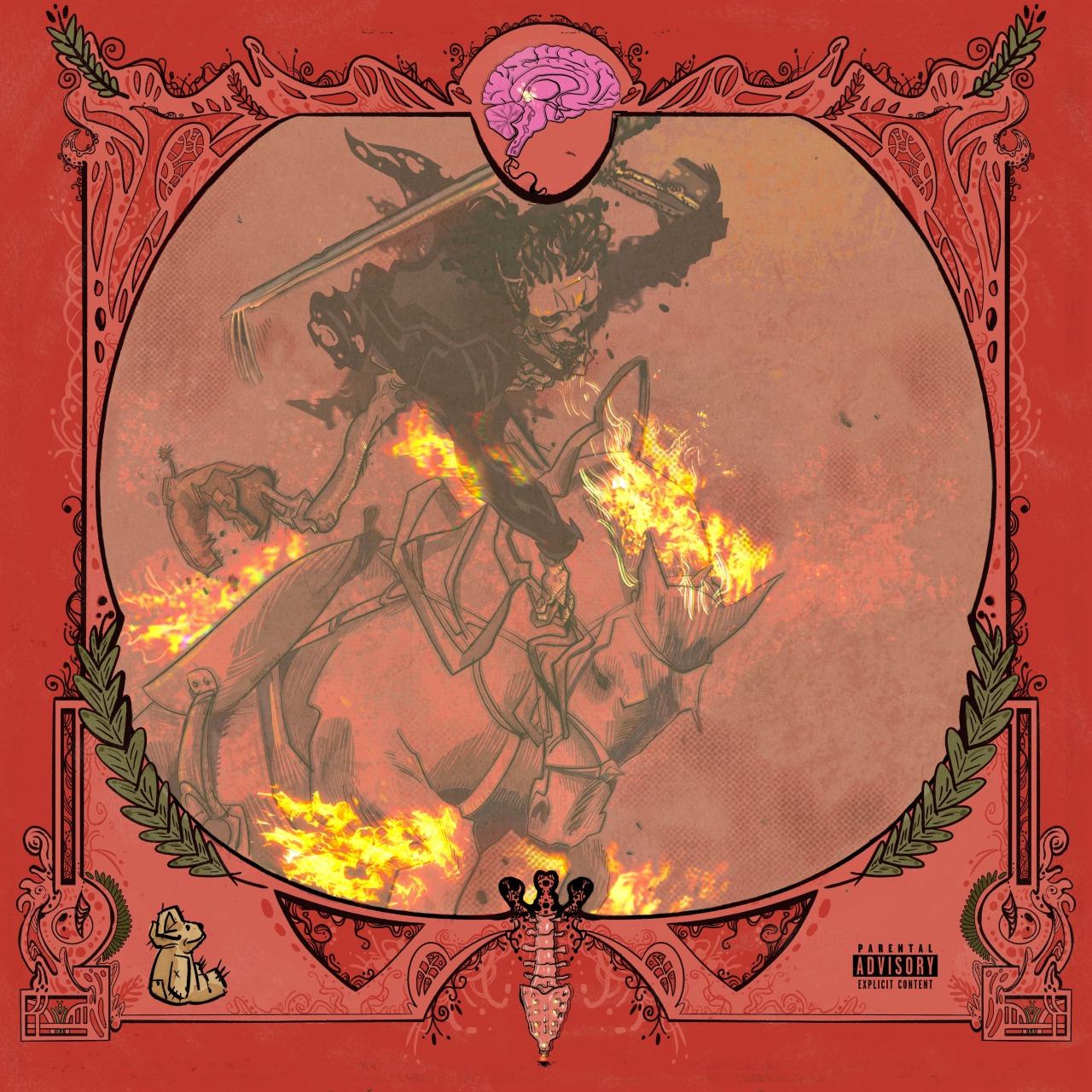EP REVIEW: REMA -RAVAGE | Afrobeats City

Rema’s Ravage EP appears in such stark contrast to the chart-topping “Calm Down” that a more cynical observer might tackle it as being backwards in direction—like leaving one field half ploughed to begin anew in a new one. His rumbling energy and combative demeanour do not gel well with the pure, heartstrung affection with which “Calm Down” introduced him to most of the world. And yet, this breakaway from the conventional, the maverick mentality it connotes and the wealth of self-confidence it stems from are the fulfilment of every self proclamation he makes on Ravage.
Also very emblematic of the fearless spirit that Rema channels here is the choice of a release date. Even before Rema’s announcement, Friday the 26th of October was already set to be a battle ground to be contested by a number of major Nigerian acts, with Blaqbonez, Mr. Eazi, Basketmouth and Reminisce all set to release full-length albums, and likely a couple of them already regretting the choice of such a packed date. Rema, even with the foresight of watching this date get crowded before committing to it, was still unwavering in picking it for the release of his fourth career EP.
On Ravage, Rema embodies some of the hardboiled confidence and unconventional experimentation from his previous EPs—Rema, Rema Freestyle and Bad Commando—where he played with a number of less popular genres, mostly trap, to excellent artistic results. His Ravage EP is somewhat similar, except this time, Rema already has the real-life backing to many of his braggadocious statements. He sings on “DND” that he is “Oga nla, prince of Afrobeats”, a statement that should not raise many eyebrows.
He marches through Ravage alone, the sole singer on all five songs like he was for the EPs that came before, but he does not require any help: the stories he tells require a knowledge of himself that only he can provide. He ponders on “Trouble Maker”, the opener, about his role in the industry. First the outlandish disruptor mocked for his playful, often juvenile lyrics and his high-toned, Indian-sounding delivery, now positioned at the the fore-front of Afropop’s new school—and all these accolades attained without losing those core elements.
On Ravage Rema takes aim at many targets, and the detractors that queried his credentials at the onset are firmly in his crosshairs. “How many dues wey the boy don pay?/ How many insult I go take?” are his first words on the EP, before reminding that he has “been like this straight from the get-go”. On the chorus he advocates for even fewer words of advice to be directed his way in the future, acknowledging that he has prospered thus far without them: “Leave me, leave me, leave me, make I do my own, omo no judge me/ I go still pass everybody even though say una use extra sheet”. A fuming confidence drives Ravage at its core. If Rema has any self-doubt, it is not about his talent or artistry. He says on DND that “Make humility no go turn me malu”, insisting that his keenness to remain humble about his wins should not be mistaken for weakness.
Ravage presents many sides of Rema, but weakness is about as far from its theme as you can get. The promotional videos he posted on social media in anticipation of Ravage’s release, with which he successfully hijacked internet conversation, depicted him in various forms of ferocious energy. His black attire contrasted the red silhouette of the background behind him, and this choice of colours, as well as the use of other clandestine imagery—bats, skulls, fire—attracted some controversy about the religious connotation of some of these symbols, enough for Rema to have to put out a disclaimer. Asides the promotional use of these videos, which was actually enhanced by the online buzz it generated, they show Rema as not just a singer but an artist, a man who wants to please more senses than just the auditory.
His commitment to crafting a complete artistic experience also means that the five songs here are not only up to his usual standards but bear a high amount of finesse and polish, no doubt the final selection from several tracks created for the EP. It is therefore very canonical that, even in the EP’s rage, Rema finds space for expressions of the romantic nature. If Ravage was to translate Rema as faithfully as possible, it would be an incomplete product without his love, and more commonly, lust for women. These fill out the latter two tracks of the EP, “Don’t Leave” and “Red Potion”, where Rema dabbles in characteristic cleverly carnal writing—“Pisces, gimme piece of your pie, baby, yeah”, he sings on the former.
Rema is without featured artists on Ravage, but it would be wrong to make the assumption that he is the sole creative voice. Collaboration here appears behind the boards, and a trio of producers—London and P.Prime mostly, with Blaisebeatz making a sole appearance on the opener—craft Rema’s sonic soundscape in the corridor where he can glide all the way from Punk Rock to music from his Benin roots, taking in a bit of everything else—like Afropop and Palmwine music—along the way.
Rema’s new direction is, in actuality, only an evolution of the old, and another facet to his artistry is always welcome, especially when it is executed as masterfully as it is on Ravage. Sure, the section of his audience that came on board at the “Calm Down” stop, knowing not of his earlier rage-fueled inclinations, may require an acclimation period, but Rema refuses to be placed in any box, not even one that contains a song with over a billion streams on Spotify. Ravage is a gateway into his primal core, and the only thoroughfare he requires is an open, non-judgemental mind.
This article was written by Afrobeats City Contributor Ezema Patrick – @ezemapatrick (Twitter)
Afrobeats City doesn’t own the right to the images



